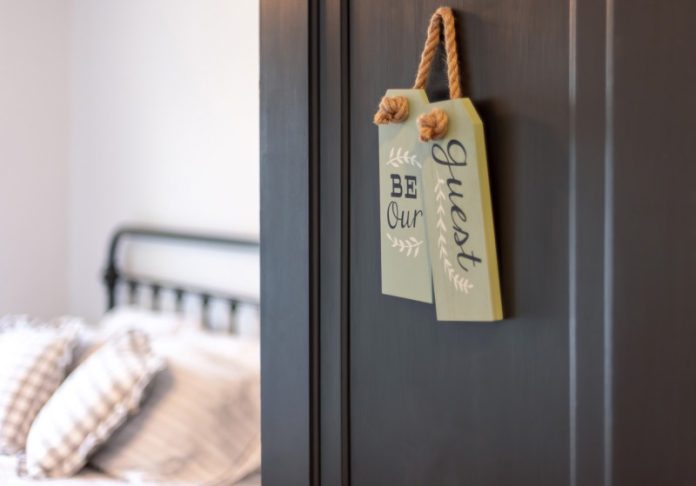
Macedon Ranges’ accommodation providers have been navigating new obstacles since the Victorian Government introduced its Short Stay Levy in January.
The 7.5 per cent tax applies to short stay accommodation (under 28 days) with its revenue to support social and affordable housing.
The tax also aims to encourage more people to use their properties as permanent rentals, but, accommodation providers are questioning its rationale and speedy introduction.
WRONG TARGET?
Macedon Ranges Accommodation Association president Peter Chiller said the levy was targeting small operators who might not be able to put their accommodation on the market for rent, as the government intended.
“It’s hitting people here in the Macedon Ranges with a one-bedroom cottage without a permanent kitchen or bathroom. Some of these providers are not permitted by local government bylaw to offer long-term accommodation,” he said.
The levy must be paid by the booking platform where the booking is made via the platform, or by the property owner or tenant where the booking is accepted.
Most of the tax is passed on to the traveller, meaning extra costs could stymy holiday plans and bookings – hurting both traveller and host.
“It just keeps adding more difficulties to people in a really tight time,” Mr Chiller told the Express.
“The government brought it in at such short notice. It was poorly done. It’s just a means of covering their incompetence and financial state.”
NEED FOR CLARITY
Mr Chiller said many accommodation providers were still trying to gain clarity on the levy.
“People now have to get independent advice. They need to get information clarified because there are a lot of grey areas,” he said.
Accommodation providers say if they itemise the levy on invoices it creates “a tax on a tax”, which then equates to 8.1 per cent – not 7.5 per cent.
“We’re horrified that the state government is collecting tax on tax,” Mr Chiller said.
“Anyone who has taken a direct booking since January 1 is also up for onerous reporting – it’s hard for small business operators who don’t have the systems in place to deal with this.
“People may find they are that they are liable for more Land Tax or Vacant Residential Land Tax (applied for vacancy less than 183 days in a year). There are lots of things that people wouldn’t have considered.”
MRAA held a seminar with the State Revenue Office last month, where members discovered some of the unintended consequences and other liabilities that Mr Chiller referenced.
There are some exemptions to the Short Stay Levy. It does not apply to hotels, motels or commercial accommodation. It also doesn’t apply to a homeowner leasing out all, or part, of their principal place of residence for a short stay, nor to a temporary stay when a homeowner goes on holiday.
EXEMPT BUT CHARGED
Islay House in Woodend is exempt from the levy but that hasn’t kept its operators free from stress the levy has brought with it.
Owner Tarni James said she had applied for ‘principal place of residence’ exemption in December, however, she discovered that one platform still made levy charges to her customers.
“I received an email from Airbnb stating they had done a legal investigation into our exemption and they agreed we were exempt, and, that they would not be charging the tax. They then charged the tax for the first three bookings for January,” Tarni said.
Tarni notified Airbnb of the charges and asked them to refund the guests, however, no refund was made.
A spokesperson for Airbnb Australia and New Zealand told the Express the levy was charged “because the exemption declaration was not yet filed by the host when those bookings were made”.
The Airbnb spokesperson described the Victorian Government’s Short Stay Levy introduction as “haphazard”.
“Despite the industry’s urgent engagement with the government, the levy contains a number of complexities, which has created difficulties for hosts, guests and platforms alike,” they said.
“We continue to work with our hosts to meet their obligations, and encourage the government to consider the impact of the levy on the host community and tourism.”
Since the levy charge confusion, Islay House has updated its exemption status to ‘commercial residential’. Tarni discovered the Short Stay Levy does not apply to commercial residential status but it instead attracts a government land tax.
“They’re going to get you either way,” she told the Express.
The Express understands the State Revenue Office ran an education program to help booking platforms implement the short stay levy from January 1.
The Express was informed that different booking platforms could structure their arrangements to recover the levy in different ways.
Booking platforms that collect booking fees of $75,000 or more per year must lodge and pay the levy quarterly, with their first return due by April 30.
The state government said there was a rigorous compliance program in place to ensure those liable for the levy paid the right amount at the right time. If non-compliance is detected, penalties and interest may apply.






